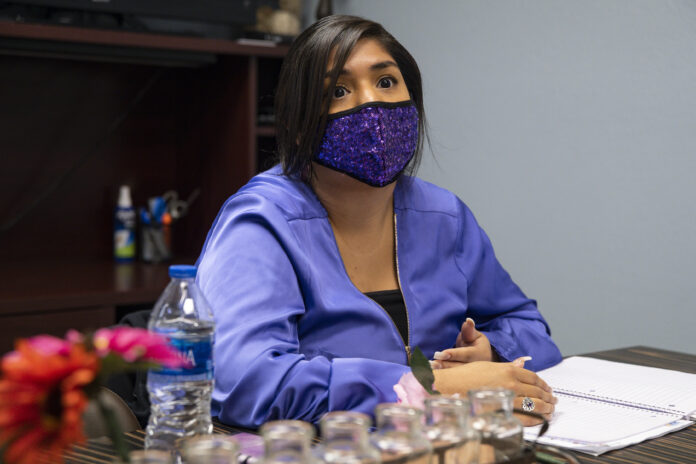Crisis Center of West Texas wanted to implement a program that combined its efforts with local law enforcement.
After researching and seeing what has worked in other parts of the country, the Crisis Center of West Texas decided to use the Lethality Assessment Protocol (LAP).
That program began in Ector County in March 2020 and for the last year and a half the Crisis Center of West Texas has received about eight LAP referrals per week, Crisis Center of West Texas’ Director of Client Services Gabriela Spurger said.
“We had already seen that it was tool that was used around the nation and in other communities and we saw that it was successful,” Spurger said. “We wanted to do that same. We worked with (law enforcement) and we collaborated as a team and then we got it implemented in March of 2020.”
LAP is a strategy aimed at preventing domestic violence homicides.
In a seven-month span from 2020 and 2021, family violence crimes recorded by the City of Odessa have risen by a little more than 10%.
The family violence crime numbers from January 2020 to July 2020 were 928, while those numbers have increased to 1,024 from January 2021 to July 2021, according to the National Incident-Based Reporting System report provided by the Odessa Police Department.
“When you look at our domestic violence numbers here in the City of Odessa and in Ector County, they aren’t good at all,” OPD Chief Michael Gerke said. “We are looking for any type of way to bring those numbers down.”
Ector County Sheriff Mike Griffis said his department relished the opportunity to join efforts with the Crisis Center of West Texas.
“Family violence isn’t our business, but for the Crisis Center of West Texas that’s their main business and when they brought this to our attention we were on board immediately,” Griffis said. “We welcome that program and we got on board. We are proud to be part of that.”
During an interview with Spurger, she walked through the steps of procedures of LAP.
Spurger said the first step is when law enforcement is called out to a scene and they go through their investigation process. If law enforcement figures out it’s a domestic violence situation, they will complete a LAP assessment one on one with the survivor and then law enforcement will make a phone call to the Crisis Center of West Texas.
Gerke detailed to the LAP assessment has different weighted points and once a certain level is reached than officers automatically call the Crisis Center of West Texas.
“We’ve always mentioned there are places out there like the Crisis Center or Safe Place that they can receive services, but this takes that out of equation because we will give the phone over to the victim,” Gerke said. “We are there for security.”
Victims of domestic violence are given the choice whether they want to enter the shelter at the Crisis Center of West Texas or not. If a person decides they want to enter the shelter, Spurger said those victims are typically transported to that facility by law enforcement.
Regardless if a person enters the shelter, everyone in LAP can receive counseling and legal services.
Spurger said recently it’s more common for people to only request counseling and legal services.
The choice of receiving additional help and services from the Crisis Center of West Texas is ultimately up to the victim of domestic violence.
“It all depends on the survivor what choice they make,” Spurger said. “Sometimes they decide to accept services and continue. Sometimes they aren’t ready and they don’t. It’s a case-by-case basis.”




